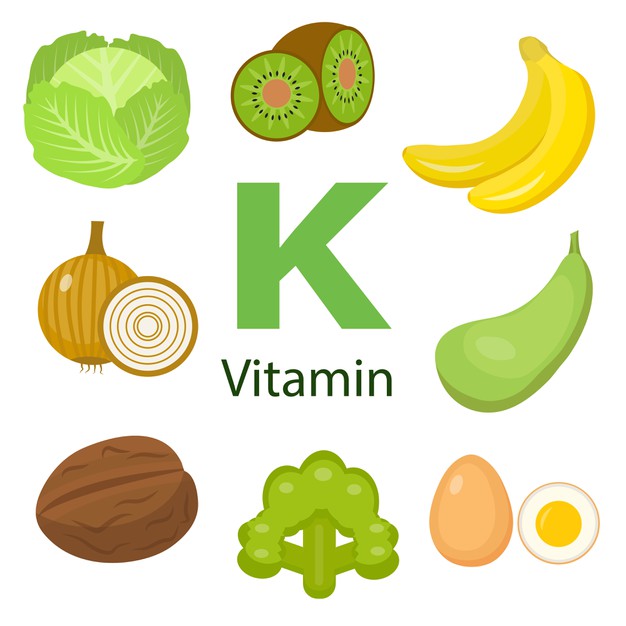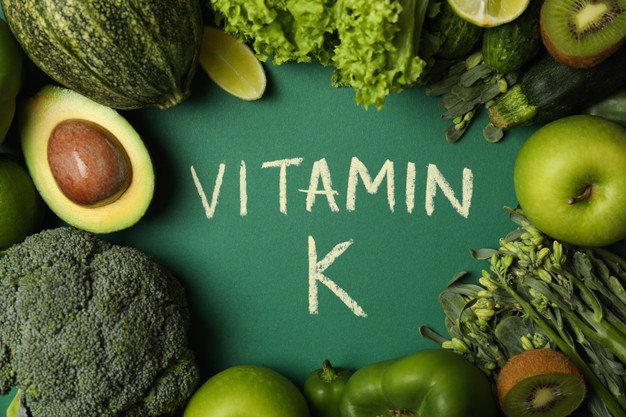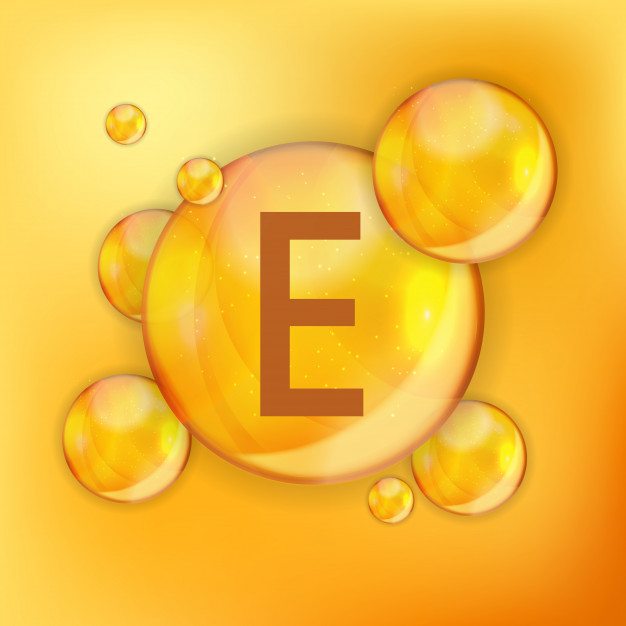Fat soluble vitamin, blood coagulation, bone tissue formation
Description : Vitamin K is the only fat soluble vitamin that has a specific coenzyme function. It plays
Article Details :
Vitamin K is the only fat soluble vitamin that has a specific coenzyme function. It plays significant role in synthesizing several proteins within body, which are essentially required for building bones as well as for blood coagulation. It also exerts various other biochemical activities within body that ultimately help to enhance the overall nutritional status hence improve health.
Chemistry
- Vitamin K is found in different forms, which include phylloquinone (Vitamin K1), menaquinone (Vitamin K2) and menadione (Vitamin K3)
- Phylloquinone is generally present in green leafy vegetables like kale, spinach, collard greens etc
- On a contrary menaquinone is naturally found in animal foods as well as in fermented foods. It can also be synthesized within body by bacteria
- Whereas menadione is a synthetic from
- Vitamin K1, K2 and K3 are the derivatives of naphthoquinone
- Vitamin K1 and K2 both contain isoprenoid side chain in their structure
- All of these three vitamins are heat stable but they can be easily destroyed by strong acids or alkalis or irradiation or oxidizing agents
- Some antagonists of Vitamin K are also found, which include heparin, salicylates, bishydroxycoumarin, dicumarol etc
Sources
Foods rich in Vitamin K are listed below –
- Natto
- Spinach
- Parsley
- Beet greens
- Broccoli
- Cabbages
- Cooked collard greens
- Cooked mustard greens
- Swiss chard
- Hard cheese
- Soft cheese
- Jarlsberg Cheese
- Blue cheese
- Edam Cheese
- Cheddar cheese
- Butter
- Whole milk
- Cream
- Avocado
- Kiwi
- Soybean oil
- Green peas
- Brussels sprouts
- Green beans
- Chicken
- Bacon
- Duck especially duck breast
- Prunes
- Pork
- Beef especially beef liver
- Egg yolk
- Black berry
- Blue berry
- Tomatoes
- Pomegranate
- Figs
- Grapes
- Pine nut
- Walnuts
- Cashews
- Hazelnuts
- Red kidney bean
- Cauliflower
- Alfalfa

Absorption, storage and transport of Vitamin K
- Though Vitamin K is synthesized within body by intestinal bacteria but the absorption of dietary Vitamin K is taken place within small intestine
- Vitamin K requires bile salt as well as chylomicrons for its absorption
- Vitamin K is stored mainly in liver
- It also found in some other organs like brain, bone, pancreas and heart
- It is transported along with LDL within the body
Health benefits
Role on blood coagulation
- It plays vital role in stimulating the blood clotting process
- It is associated with synthesizing a protein called prothrombin, which helps in blood coagulation
- It also helps in the post-translational modification of various blood clotting factors involved in blood coagulation
- It helps to convert various coagulation factors (factor II, VII, IX and X) into their mature form as well that ultimately facilitates blood coagulation
Role on wound healing
- Consumption of Vitamin K is very effective for accelerating the process of wound healing
- It is closely related with increasing the rate of wound contraction, enhancing epithelialization period and promoting the synthesis of fibroblasts cells, which eventually help in rapid wound healing
Role on skeletal health
- It helps to synthesize osteocalcin (a protein), which aids in the production of healthy bone tissue
- It helps to enhance bone mineral density as well
- It also helps to maintain the strength of bones and prevents the prevalence of bone fractures
- Poor consumption of Vitamin K can increases the risk of developing osteoporosis
Role on cognitive health
- It has seen that an increase in the vitamin K level in blood helps to improve episodic memory, especially in older people
- Vitamin K1 (phylloquinone) is extremely helpful for improving cognitive ability and memory
Role on cardiovascular system
- Vitamin K2 (menaquinone) plays significant role in preventing calcium accumulation within arteries. This type of mineralization (building up of minerals within arteries) is considered as one of the major causative factor of cardiac morbidity and mortality. Consumption of Vitamin K2 significantly reduces the risk of developing cardio vascular diseases as it helps to prevent mineralization of artery
- It helps to reduce blood pressure as well and helps to make the heart able to pump Read more




